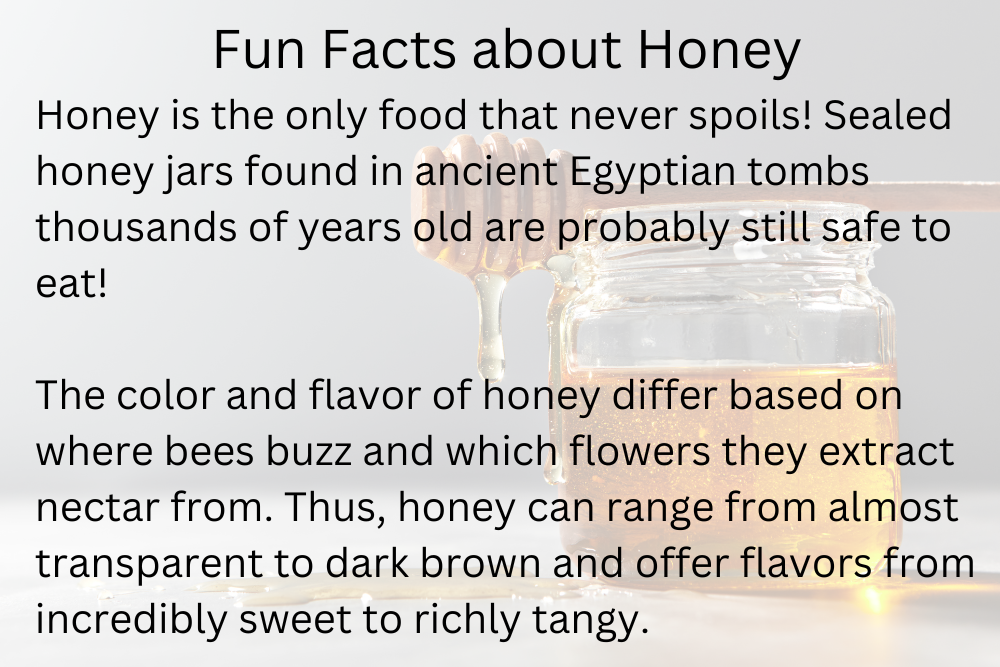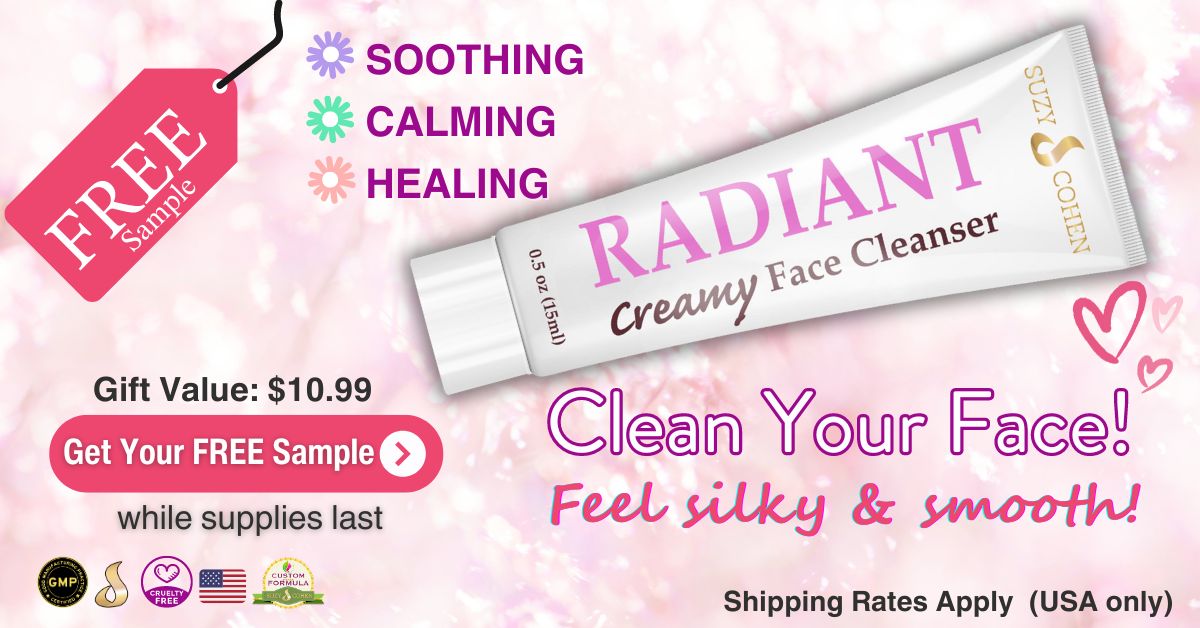What's On This Page?
ToggleHoney, a sweet viscous substance produced by bees, has been a staple in traditional medicine and diets for centuries. Beyond its delicious flavor, this golden liquid possesses a plethora of health benefits.
Honey is more than just a sweet treat. It’s good for you, too! You can read this ABSTRACT if you want to see more. People say it can help with things like healing, reducing swelling, and fighting off germs. This is thanks to special ingredients in honey called phenolic compounds. We looked at a bunch of studies, 48 to be exact, from 1985 to 2022 that had a total of 3,655 people in them. The results? Eating honey seems to be better for you than not eating it.
It’s shown to be helpful for heart health, blood sugar control, soothing soreness from cancer treatments, helping kids’ coughs, and healing wounds. Most of these studies say that honey is especially good if you use it instead of other sugars. Also, honey might even help some medicines work better. However, we need more studies to be super sure about all of this. I like honey better than regular refined sugar by a mile! Did you know that refined sugar is bad for autoimmune conditions? If you didn’t realize that, take 5 minutes to read THIS ARTICLE I wrote which elaborates on how sugar can increase flareups.
Now let’s explore the clinically studied medicinal advantages of honey, delve into its various types, and sprinkle in some fun facts for good measure.
When purchasing honey, you might have noticed that some brands are raw, while others do not state “raw” on the label. What’s the difference?
Raw vs. Regular
Raw honey is honey in its purest form, directly taken from the honeycomb. It undergoes zero heat treatment or pasteurization, preserving all its natural enzymes, vitamins, and minerals. Just FYI, if you ferment your own yogurt like I do, you can’t use raw honey because it has natural antibiotics in it. And during the incubation process, these natural antimicrobials will kill the probiotics (healthy bacteria) in your yogurt starter culture!
Regular honey, on the other hand, often undergoes processing, which might diminish some of its health benefits and remove a lot of these natural antimicrobials. You may be able to use it to ferment yogurt.
Which Color is Best? Dark Honey vs. Light Honey
Have you noticed the color of honey in the bottle? Some are almost clear, and others are darker, like a deep golden brown. The color of honey is determined by the type of flowers the bees visited!
Dark Honey: Darker varieties are typically richer in flavor and have more antioxidant power. Some flowers that produce darker honeys include buckwheat, chestnut, and heather. Dark honey, like buckwheat, tends to have higher mineral content and antioxidant capacity.
Light Honey: Lighter honey varieties come from flowers like acacia, clover, and orange blossoms. Light-colored honeys are the most popular ones on the market. These generally have a milder flavor profile compared to dark honey and the hue is often a very pale yellow or light amber. Now let’s talk about how useful honey is because it is a superfood.
The 5 Medicinal Benefits of Honey
1. Antimicrobial Properties
One of honey’s most renowned benefits is its ability to combat harmful microorganisms. It’s effective against several bacteria, fungi, and viruses1. For instance, Manuka honey, native to New Zealand, is particularly known for its strong antibacterial properties against many pathogens, including Staphylococcus aureus and Helicobacter pylori2.
2. Wound Healing
For ages, honey has been applied topically to treat burns, ulcers, and other wounds. Its healing powers can be attributed to its ability to maintain a moist wound environment, its antimicrobial properties, and its high viscosity, which helps create a protective barrier.
3. Cough Suppressant
A spoonful of honey can soothe an irritated throat. Clinical studies suggest that honey is just as, if not more, effective than some over-the-counter cough suppressants.
4. Fight Free Radicals
Honey is antioxidant-rich and contains numerous compounds including flavonoids that neutralize free radicals. In doing so, it potentially reduces your risk of inflammation and chronic disease. Based on the findings from this REVIEW PAPER, the antioxidant potential of honey is emphasized as significant “in many disease conditions and is due to a wide range of compounds including phenolics, peptides, organic acids, enzymes, and Maillard reaction products. Honey has also been used in some gastrointestinal, cardiovascular, inflammatory, and neoplastic states.”
5. Supports Digestive Health
Some studies have indicated that honey might benefit those with gastrointestinal issues. It can counteract acid reflux and even reduce the duration of bacterial diarrhea. Honey actually contains prebiotics! The main sugars in honey are fructose (about 35% of the makeup) and glucose (about 30%) and these sugars are easily absorbed in our digestive system. Also honey boasts about 5% fructooligosaccharides (FOS) which act as beneficial prebiotics.
When you consume FOS, they reach your colon intact where they feed the beneficial bacteria, particularly a strain called “Bifidobacteria.” By promoting the growth and activity of these good bacteria, FOS found in honey can help support your gut flora, which translates to better digestion, thyroid hormone and immunity.
Different Types of Honey
Manuka® Honey: This is a brand name that is a superstar in the world of honey. Manuka is native to New Zealand and Australia and is produced by bees that pollinate the native Manuka bush. It’s lauded for its potent antibacterial and antiviral properties, thanks to a compound called methylglyoxal. Manuka honey has a unique grading system called the Unique Manuka Factor (UMF), which denotes its purity and quality.
Wildflower Honey (also known as polyfloral honey): Sourced from a myriad of wildflowers, this honey’s taste, aroma, and properties can vary widely based on the diverse flowers used for its production. Unlike monofloral honey (from one type of flower source), wildflower honey boasts a broader spectrum of nectar varieties, which might contribute to its unique health benefits. Having multiple flower sources in your honey means it might cause more sensitivity in people prone to allergies.

Caution: Not for Babies!
Honey is a natural, tasty treat loved by many, but when it comes to infants, caution is required. Children under the age of 12 months should not be given honey. The reason for this precaution is the potential risk of botulism, a very rare but serious illness caused by Clostridium botulinum.
These bacteria can produce spores that survive in honey, and while they don’t pose a threat to older children and adults, a baby’s immature immune and digestive system isn’t able to handle these spores so infection becomes more likely. Botulism in infants is rare. But to be complete I’ll tell you the symptoms. It can lead to symptoms like constipation, generalized weakness, a weak cry, poor feeding, and lethargy. If suspected, this requires immediate medical attention.
After your child is more than 12 months old, honey should be fine but ask your pediatrician to be sure. This is because their digestive systems are more mature, and all those risks linked to honey diminish significantly.
Interesting Comments About Allergies and Honey
If someone is allergic to a specific flower, for example, clover, it’s natural to question whether the honey derived from that flower’s nectar would also trigger an allergic reaction. You may have been wondering this very thing as you read my article.
However, according to the literature, honey allergies stemming from floral sources are quite rare. This is because the pollen grains from flowers responsible for most pollen allergies are too large to be carried by bees. Instead, bees carry smaller, nectar-bearing pollen grains, which rarely cause allergic reactions. That said, it’s always good for individuals with severe allergies to be cautious and possibly consult an allergist or immunologist.
As for the production of honey, bees primarily gather nectar, a sweet liquid, from the flower itself. They do not collect the nectar from stems or leaves. Once collected, bees return to their hive and transform the nectar into honey by a process of regurgitation, enzymatic activity, and evaporation.
People do have allergies to honey, it’s typically due to the pollen. If you have a known allergy to honey, you should avoid it as well as bee pollen and royal jelly. There’s more about that down below.
Do Manufacturers Have to Disclose Everything?
I’ve wondered if honey manufacturers need to disclose their sources on the label because sometimes I can’t find it, it just says “wildflower” but I wonder what are the wildflowers? Are they weeds lol?
But there’s no worldwide standard mandating companies to specify the exact floral source of their honey. Some premium brands or artisanal producers might label their products as ‘single-origin’ or specify the flower source, especially if it’s a unique variety like Manuka or orange blossom. However, many commercial brands might simply label their product as ‘wildflower honey’ or ‘blended honey’, which means it’s sourced from various unspecified flower types.
This ‘golden elixir,’ with its vast variety and origins, is indeed a fascinating topic in both culinary and medicinal realms! Let’s talk about some sticking points I had about honey and had to look up!
For example, is honey derived from buckwheat considered gluten-free?
Buckwheat-derived honey – is it gluten-free?
This was hard to figure out but the answer is YES, it’s inherently gluten-free. Buckwheat, despite its name, is not related to wheat and does NOT contain gluten. It’s a pseudocereal, more akin to rhubarb and sorrel. The name “buckwheat” can be misleading because it has “wheat” in it.
When bees make honey from the nectar of buckwheat flowers, they collect the sugary fluid from the flower, not any component of the seed or grain that might be turned into buckwheat flour. So, buckwheat honey is indeed safe for those with celiac disease or gluten sensitivity.
What If You’re Allergic to Bee Stings?
Do you know that if you’re allergic to bee stings, you can still more than likely enjoy honey! That surprised me but being allergic to bee stings does not automatically mean one will be allergic to honey, and vice versa. The major allergens in bee venom from a sting are proteins like melittin, apamin, and phospholipase A2, which are NOT found in this liquid gold sweetener.
There’s a caveat: While honey is generally safe, individuals with bee sting allergies should exercise caution when considering supplements like bee pollen or royal jelly, as there have been documented allergic reactions. But again, honey itself is usually considered safe for them, it’s the other stuff like bee pollen or royal jelly.
Ask a medical professional to get a clear understanding of your own individual allergies/risks because I’m not sure what’s right for everyone reading this.
Is It Vegan or Vegetarian?
This one is confusing and so I’ll just try to give you a general overview:
Vegetarian: Honey is typically considered vegetarian because it doesn’t involve the direct killing or harm of animals.
Vegetarians avoid consuming animal flesh like beef or chicken, but many still consume animal byproducts like dairy and eggs. Following this logic, honey, being a byproduct of bees, aligns with a vegetarian diet for most.
Vegan: I’d say no to this one, honey is not considered vegan. That’s because with veganism, in addition to avoiding animal flesh, people typically exclude ALL animal byproducts.
And because honey is made by bees for their own benefit (as a food source for the bee hive community) and not for human consumption, it’s exploiting the bees for the purpose of getting honey. Additionally, commercial brands can sometimes involve practices that inadvertently harm bees or interfere significantly with their natural behavior, such as:
Taking their honey and replacing it with a sugar substitute, which isn’t as nutritious.
Using smoke to calm bees, can interfere with their natural behaviors.
The potential killing of bees during extraction.
Breeding practices that can harm the health of bee colonies.
Considering these factors, many vegans opt to avoid this natural sweetener and choose plant-based ones like maple syrup, agave nectar, or date syrup instead.
However, it’s worth noting that personal definitions and boundaries vary. Some vegans might choose to consume honey, especially if sourced from ethical and sustainable beekeepers. It always comes down to individual choice and the specific motivations behind one’s dietary decisions.
Summary
Honey, a revered natural substance, offers a wealth of health benefits backed by modern science. Its impressive antimicrobial traits, wound-healing capabilities, and antioxidant-rich content make it more than just a sweet treat. With varied types like Manuka and Wildflower, consumers have a range to choose from, each with its unique profile. Embracing honey in our diet is not only a nod to ancient wisdom but also a step toward holistic health.

Suzy Cohen, has been a licensed pharmacist for over 30 years and believes the best approach to chronic illness is a combination of natural medicine and conventional. She founded her own dietary supplement company specializing in custom-formulas, some of which have patents. With a special focus on functional medicine, thyroid health and drug nutrient depletion, Suzy is the author of several related books including Thyroid Healthy, Drug Muggers, Diabetes Without Drugs, and a nationally syndicated column.


